Understanding The Body’s Process Of Eliminating THC
How long does weed stay in your system? This is one of the most asked questions now that medical cannabis is legal in 38 states, three territories, and the District of Columbia.
With more people using medical marijuana legally, it’s essential that everyone understands how the body processes cannabis and how long it takes to get rid of THC from the system.
This may help answer questions about when you can drive or fly after taking medical weed and if it is considered driving under the influence if THC is detected in your system.
Medical marijuana is now available in Utah. Adults with any qualifying conditions outlined by the state can apply for a medical marijuana card that allows them to buy weed legally and offers some legal protections.
To find out if you are eligible for the Utah medical marijuana program, book an appointment with a qualified medical provider at the Green Team Doctors today.
With that out of the way, how long does weed stay in your system?
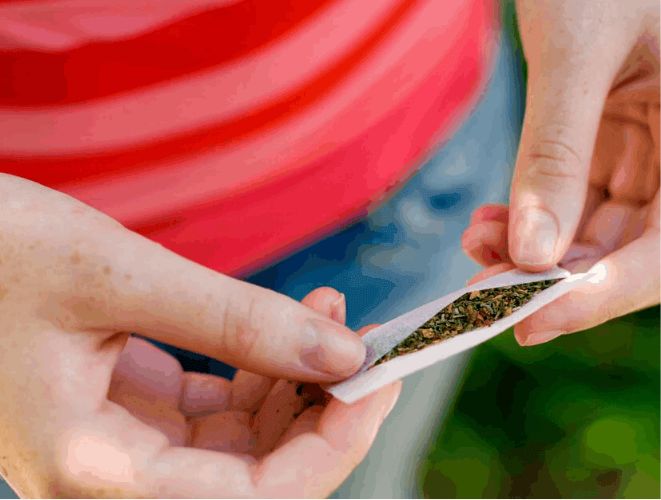
How Long Does Weed Stay in Your System? The Simple Answer
People across the country have easier access to marijuana as society’s view on the plant and laws about its use shift. But although you can access medical marijuana legally, some organizations and institutions may have their own rules about cannabis use.
This raises the question, “How long does weed stay in your system?”
As you will find out, there is no definite answer.
How long marijuana stays in your system depends on many variables, including individual characteristics such as weight, body fat, and metabolism, to other considerations such as the sensitivity of the drug test.
So, how long does weed stay in your system? Some studies suggest a few hours to as many as 90 days.
The reality is a bit more complex as we must consider all the factors that affect how the body metabolizes THC, the different marijuana drug tests, and other individual and external factors involved.
To better understand how long marijuana stays in your system, we start with how your body processes cannabis after ingestion.
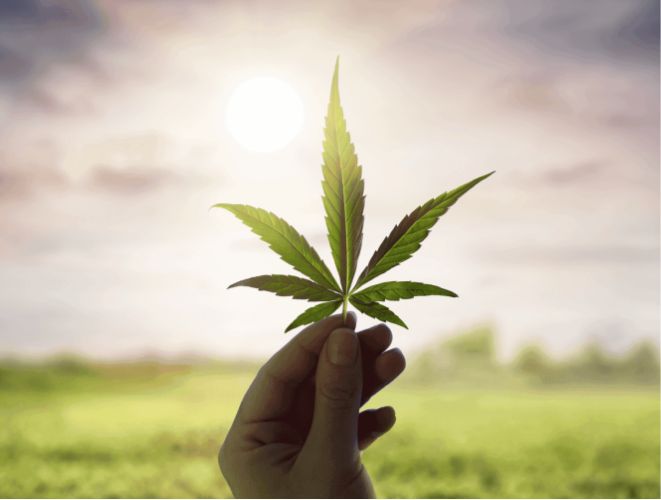
How Your Body Processes THC
Delta 9 tetrahydrocannabinol is the primary cannabinoid in cannabis responsible for most of the plant’s medical benefits and effects, including the psychoactive effects.
When you consume marijuana, THC is processed by the liver and turned into metabolites. The metabolites can then be stored in the body or excreted.
THC itself is only detectable for a few hours before it’s metabolized. The primary metabolite of THC is 11-Nor-9 carboxy-THC, commonly known as THC-COOH.
THC-COOH has a longer half-life in the body than THC. This is why most marijuana drug tests look for this metabolite in the blood or urine.
THC-COOH has no psychoactive effects and is formed by the oxidation of the active metabolite, 11-hydroxy-THC.
This metabolite is further broken down to make it easier to be excreted. However, the body doesn’t always eliminate all THC metabolites immediately.
Some THC and its metabolites can be stored in your body’s fatty tissues and organs and released into the bloodstream weeks or months after consuming medical marijuana.
For people who use cannabis often, THC will concentrate in fatty tissues faster than the body can eliminate it, so it may still be detectable in the system months after use.
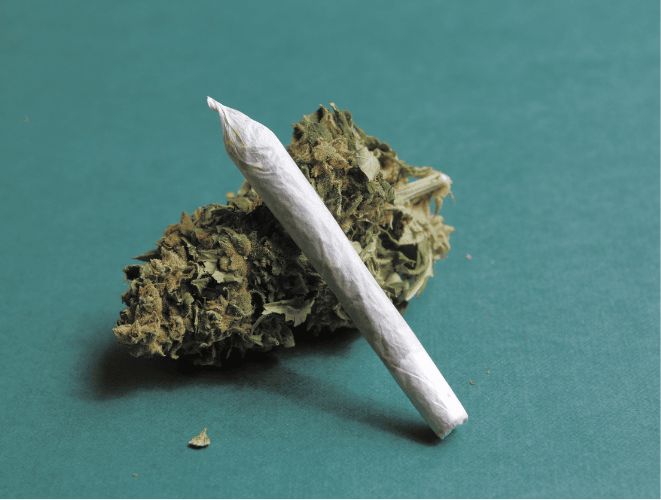
6 Factors Affecting How Long Marijuana Stays in Your System
Marijuana affects everyone differently. As such, the time taken for individuals to remove THC from their bodies varies.
Numerous factors affect how long THC stays in your body. Here are some:
1. Metabolism
How fast does your body eliminate THC and metabolites from your body? Individuals have varying metabolic rates.
People with faster metabolisms will typically eliminate THC quicker than those with slower metabolisms.
2. Body fat
THC and its metabolites are typically stored in body fat after consumption. As such, people with lower body fat concentrations may get rid of cannabis faster than people with more body fat.
3. Hydration levels
While drinking lots of water may not significantly reduce the chances of a positive drug test outcome, severe dehydration might.
Dehydration may increase the THC concentration in the body.

4. Exercise
In one 2013 study, 14 regular cannabis users who had either fasted overnight or been fed exercised for 35 minutes on a stationary bike.
They were tested for THC immediately after the exercise and 2 hours post-exercise. The researchers found that exercise enhanced plasma THC levels.
The study concluded that by exercising, dormant THC stored in body fat is released into the bloodstream, increasing the risk of a positive drug test.
5. Frequency of use
How frequently you consume marijuana for medical purposes may affect how long weed stays in your system.
People using marijuana to manage chronic conditions, including most qualifying conditions in Utah, are likely to consume it long-term.
If you are wondering whether your condition qualifies you for a medical marijuana card in Utah, schedule an appointment with a qualified medical provider with the Green Team Doctors today.
Frequent cannabis consumers build up THC concentrations faster than their bodies can eliminate it. This means THC stays in your system longer if you are a daily cannabis consumer.
One study found that THC levels in the blood persist for multiple days in heavy chronic cannabis consumers. The study found that some participants had measurable THC in their blood even after seven days of abstinence.
6. Type and Sensitivity of the Drug Test
The type of test you take will determine how long cannabis can be detected in your system. Its sensitivity will also matter too.
The most popular tests for cannabis detect THC and its metabolites in urine, blood, saliva, and hair. Hair tests can detect THC consumption even after three months, urine tests up to 30 days, while blood tests may detect THC metabolites up to 6 days after, depending on the frequency of use.
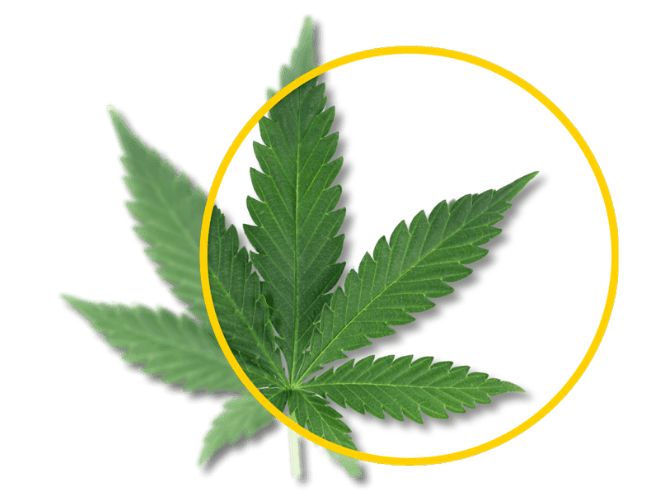
How Long Does Weed Stay in Your Bloodstream?
Blood THC tests are less frequently used due to their invasive nature and difficulty of administration. However, they can be used in some situations, especially in accident, injury, and DUI investigations.
Blood tests can detect both THC and its primary metabolite THC-COOH. But how long does weed stay in the system when tested in blood?
Cannabis is detectable in the blood for anywhere between 12 hours to 24 hours for intermittent consumers. So if it’s your first time to use medical cannabis, your body may eliminate all THC in just a few hours.
However, as some studies have found out, if you are a frequent consumer, THC may be detectable in your system even after seven days.
The method of consumption also plays a role in how long THC can be detected in your bloodstream.
One study found that THC taken through inhalation techniques can be detected in blood plasma within seconds after the first puff, and peak concentration attained within 10 minutes.
The same study found peak plasma concentrations were achieved within 1 to 2 hours of oral ingestion. Blood THC levels decrease sharply after peaking, which suggests that THC from edibles may be detectable for much longer.
However, blood THC levels are not indicators of intoxication.
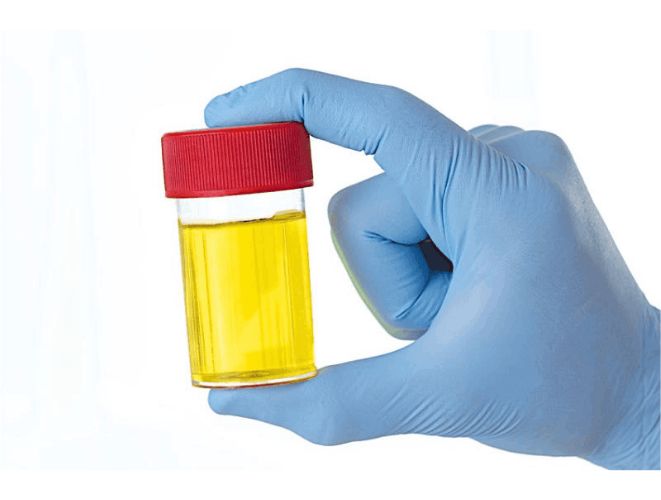
How Long is THC Detectable in Urine?
Urine tests are the most common type of drug test. These test for THC metabolites leaving the body through urine.
A 2012 study found that about 20% of cannabis compounds are excreted in urine, while up to 65% are excreted in feces.
On average, urine tests can detect THC metabolites after longer periods than blood tests.
On average, urine tests can detect THC three days after consumption for occasional consumers, up to seven days for moderate users, and more than 30 days for chronic users.
The metabolite THC-COOH typically appears in urine within 60 minutes but can take as long as 4 hours, depending on the consumption mode.
How Long is THC Detectable in Hair?
Hair tests have the longest detection period of any test. However, they are also more inaccurate due to secondhand smoke contamination.
Hair grows by about 0.5 inches per month. Research shows that cannabis can be detected in hair for up to three months.
This suggests that taking a 1.5-inch hair can provide information about cannabis consumption over the past 90 days.
However, hair testing has several problems, including THC metabolites only showing up in hair 7 to 10 days after consumption.
Research also shows you can test positive for THC through hair from secondhand smoke contamination.
Can THC Show Up in Saliva or Mouth Swab?
Saliva testing has the shortest window of detection for cannabis. But as with hair testing, a mouth swab is not very accurate in detecting THC consumption.
THC can be detected in saliva between 24 and 72 hours after consumption. However, in one study, researchers detected THC in saliva for up to 8 days after cessation.
Saliva tests only detect THC that comes into direct contact with the mouth, such as smoking, vaping, or eating. Saliva tests aren’t very effective for edibles, and if you use a THC pill, you can completely bypass your saliva.
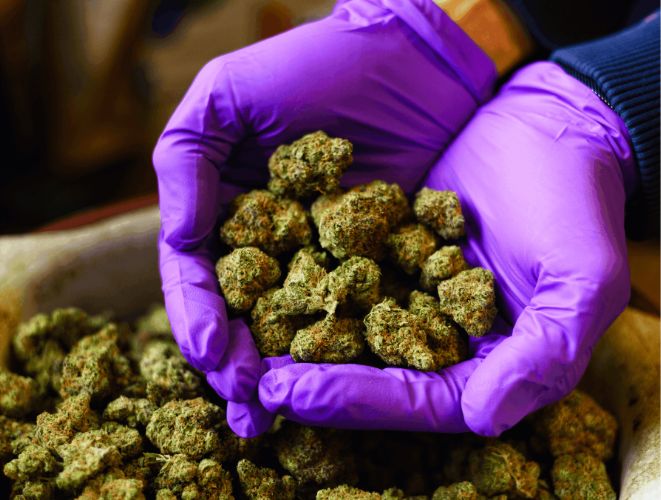
Conclusion: How Long Does Marijuana Stay in Your System?
Unfortunately, there is no definitive answer to the “How long does weed stay in your system?” question. This is because all THC testing methods are affected by several variables unique to each individual.
Common tests, such as the urine test, can detect THC three days after consumption for occasional users and up to 30 days for chronic consumers. Blood tests can detect THC between 24 hours and six days.
Hair testing has the longest detection period, detecting THC for up to 90 days after consumption, but it is also more susceptible to secondhand smoke contamination. Saliva tests only detect THC that comes into contact with the mouth.
Most states with legal marijuana programs have laws protecting patients from THC drug tests and the consequences that may arise. However, they usually only apply to state employees and not private employees.
It’s advisable that you familiarize yourself with the laws in your jurisdiction before using cannabis for medical cannabis.
Wondering how to get a medical marijuana card in Utah, schedule an appointment with a Green Team Doctor’s qualified medical provider to get approved or ask any questions about the state’s medical marijuana program today!
